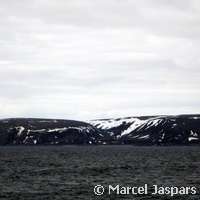Credit: Marcel Jaspars
Researchers are embarking on an ambitious four-year project to explore some of the deepest, coldest and hottest places on the planet. The aim is to collect and screen samples of mud and sediment from huge, previously untapped, oceanic trenches, more than 8,000 metres deep.
The first field tests will be carried out shortly in the Atacama Trench in the Eastern Pacific Ocean, off the coast of Chile and Peru, and then the search will journey to the Arctic waters off Norway and the Antarctic via Italian and South African partners. Deep trenches will also be accessed off New Zealand and China.
Studies will focus on exploring the deepest, most extreme and as yet unexplored trenches. Only a handful of samples have ever been taken from such sites, but this is the challenge for the PHARMASEA project, which aims to break new ground.
The project team will also centre on biodiscovery research and development of new bioactive compounds from bacteria and fungi, including those obtained from macroorganisms. These will be evaluated in order to see their potential as novel drug leads or ingredients for nutrition or cosmetic applications.
'We will be exploring new marine bacteria that can produce antibiotics in three areas,' says chemistry professor Marcel Jaspars who is the director of the Marine Biodiscovery Centre at the University of Aberdeen, Scotland, as well as coordinator of the project. 'We are also looking at discovering drugs that can help central nervous system diseases, antioxidants and inflammatory solutions which are also used in cosmetics.'
The professor believes that this research is crucial given that new antibiotics have not been registered since 2003. He says, 'If nothing is done to combat this problem, there is a risk we will be back to a ''pre-antibiotic-era'' in around 10 or 20 years, where bugs and infections that are currently quite simple to treat could become fatal.'
Professor Jaspars continues: 'Organisms underwater are very different from what you find on land. The marine organisms we are researching can live more than 6,000 metres below sea level so they can survive under extreme conditions. This makes them a very interesting source of bioactive compounds.'
In addition to covering new territory at the bottom of the oceans, the project will also explore new areas in chemical space. This refers to the ensemble of all possible molecules, which is of great interest for scientists in drug discovery. The team will develop a broad platform of cutting-edge bioassays, which will detect drug-like activity, while unique chemical compounds will be tested from marine samples that have never seen the light of day.
Researchers will be using fishing vessels in order to collect sediment samples at the bottom of the sea. They will then attempt to grow bacteria and fungi from the sediment that can be extracted to isolate novel drug-like molecules for pharmacological testing.
The international project is backed by more than EUR 9.5 million of EU-funding and brings together 24 partners from 13 countries within industry, academia and non-profit organisations.
More information: PHARMASEA www.pharma-sea.eu/
Provided by CORDIS






















